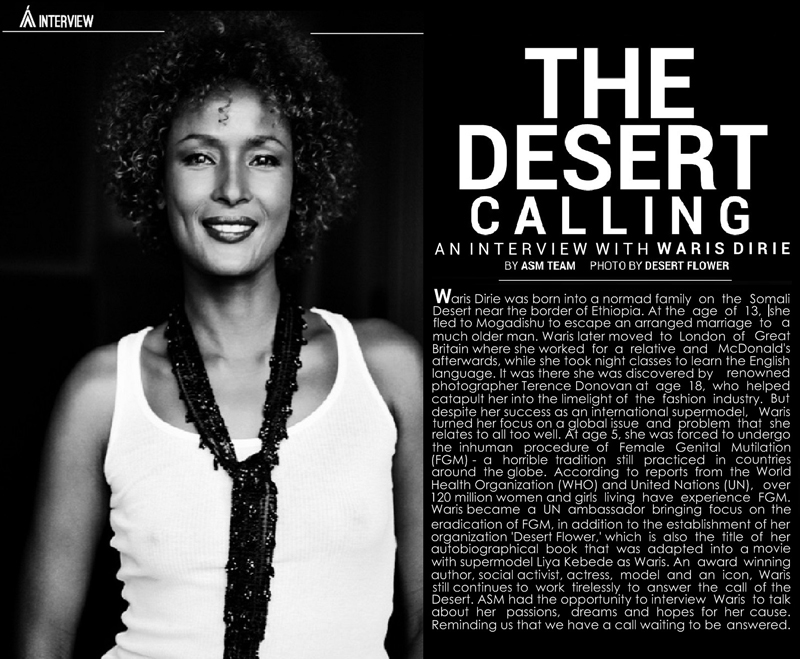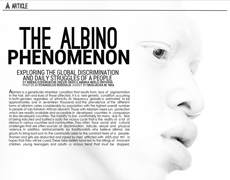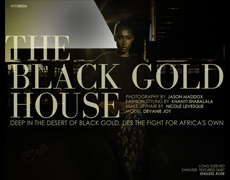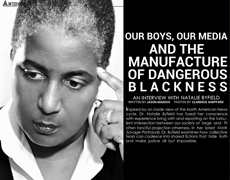ASM: Beginning at a young age, you have worked hard to build a unique life, but to this day you self-identify as "one belonging to the desert." How has this land and its culture shaped you?
WD: I grew up in the desert and its beauty and complexity have shaped my life. I learned to survive there first as a young girl amidst a nomadic culture and then ultimately on my own when I left to claim my own freedom. I learned that the desert can nourish you with its unspoiled air. It can sustain you with its guiding stars just as surely as it can kill you were you with the indifference of its unyielding light. Even though it was a hard life, there is surely a spirit there that I miss.
ASM: Would you say that the experience of the desert has prepared you to live anywhere?
WD: The transition between cultures is rarely seamless. Part of my Somali family lives in Europe today, and life is not easy for them. By chance, I was discovered by the famous British photographer Terence Donovan in London and in a very short time I became a famous model traveling the world. I was very lucky.
ASM: When you look back and survey your journey from a nomadic girl claiming her independence to an international recognizable figure, what strikes you most?
WD: There is a pride and happiness I feel generally. But also generally, I am most energized by what we have achieved in bringing worldwide attention to the cruel and warrantless practices of forced marriage and female genital mutilation. If you had asked me as a young girl where I expected to be, I could not have told you that I would be able to take one of the most traumatic experiences of my life into a way to help raise awareness; and to ultimately stop the suffering of so many others. I am tremendously thankful, that I was given this opportunity to speak up against FGM and to contribute to ending this cruel practice.
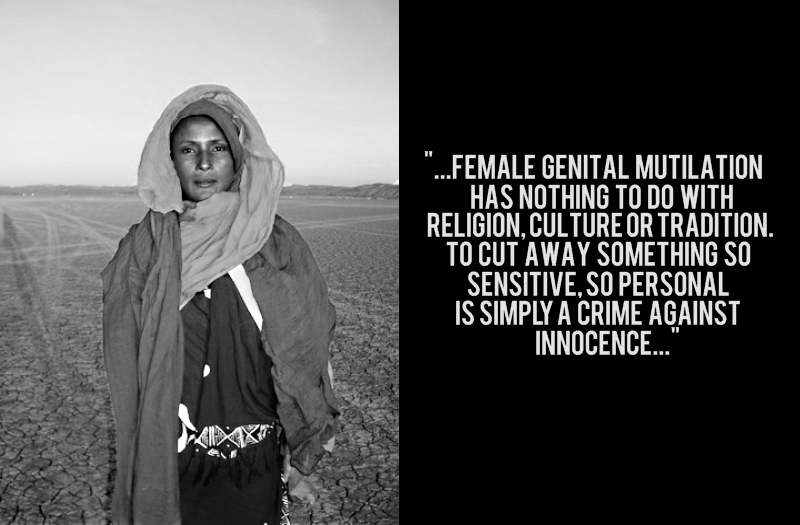
ASM: The suppression of women’s rights is an ongoing issue not only in Africa. What you do think allows such egregious practices such as female genital mutilation to continue? WD: Female genital mutilation is not a complex issue. It has nothing to do with religion, culture or tradition. Imagine it being called proper to cut away any part of your body without anesthetic. To cut away something so sensitive, something so personal to be told this is what it means for one to be pure is simply a crime against innocence. It is a crime against the bodies, and minds of our little girls. That it continues is simple injustice. As for the reasons, they are the same as any crime.
ASM: What specifically is your focus in dealing with this crime?
WD: We want to draw worldwide attention to the problem of female genital mutilation - FGM. We believe that the first step is to remove the taboo on directly addressing this practice. As more and more victims come forward, we believe the tides will shift towards accountability and persecution of those who encourage this practice. In the beginning it was very tough as nobody wanted to talk about FGM. Today many countries have implemented laws explicitly prohibiting FGM, and many organizations have joined the campaign against the practice, but there is still a lot to do. Thirty (30) million girls remain threatened by FGM in Africa alone. The practice is unfortunately widespread in Southeast Asia. For example, ninety percent (90%) of girls in Indonesia, a country with two hundred and forty 240 million inhabitants; has two (2) million girls a year forced to undergo FGM. That is horrible.
ASM: What would you tell your younger self if you could impart the wisdom you have gained through your endeavors?
WD: I would remind that young girl that Whatever happens in your life, never give up! I would tell her that a girl can change her life and that a woman can change the life of countless others.

